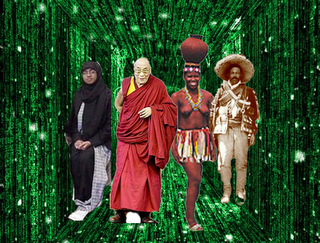 Salon.com's film critic acquires self-knowledge at Cannes. Would that the late Pauline Kael had been so insightful.
Salon.com's film critic acquires self-knowledge at Cannes. Would that the late Pauline Kael had been so insightful."As another monotonously gorgeous day broke the next morning in the eastern sky over Nice, I woke up with the idea that the celebrity panel had made the critics and reporters uncomfortable because they reminded us too much of regular viewers. Former New York Times critic Vincent Canby observed years ago that the film critic's pose of being an ordinary moviegoer is just that. You can't watch 100 or 150 or 200 films a year and be an ordinary moviegoer; you become a specialist with a defined aesthetic and rarefied tastes in some direction or other. Whether that direction lies in Thai kickboxing films or Tarkovsky-esque meditations on the soul is purely a question of temperament."
Read the full article here.





